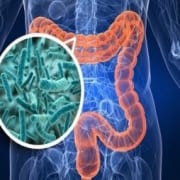Food Allergies, Sensitivities, Intolerances and When to See a Doctor
Food plays an essential role in our lives. Apart from the energy it provides, it keeps the body healthy and fit. Food nourishes and it heals. However, our relationship with food is not always straightforward. Sometimes the things that we eat can also lead to other health problems.
Food allergies, sensitivities, and intolerances are extremely common. They can happen to anyone regardless of age, gender, or health status. The symptoms can be obvious, but they can also be vague and non-specific. Consider some of the following symptoms:
- Diarrhea
- Stomach cramps
- Weight loss
- Migraines
- Tiredness or fatigue
- Itching
- Sneezing
- Bloating or gas
- Skin rashes
Symptoms that are not as obvious are pain problems, mood disorders, and even mild cognitive impairment caused by generalized inflammation in the body. For example, headaches, arthritis flare-ups, anxiety, depression, brain fog, and muscular pain can be indicative of a food allergy or intolerance but are often overlooked as a symptom.
Food allergy vs. food sensitivity vs. food intolerance
In general, people tend to use these terms interchangeably, but in actuality, they all differ.
Questions? Give Us a Call!
Food allergies
A true food allergy is an immune reaction to a single ingredient or a whole food group. Signs and symptoms can be immediate and vary from mild to fatal (also called anaphylactic).
Symptoms include:
- Swollen or itchy tongue
- Rash, hives or runny nose
- Abdominal pain, vomiting
- Difficulty breathing, wheezing or closed airways
The sole treatment for these reactions is total avoidance of the trigger food/foods, and extreme caution when eating out at restaurants and buying packaged food. In case of exposure an auto-injection of epinephrine, also known as an epi-pen, is administered.
Common food allergies are peanuts, wheat, shellfish, soy, eggs, and others less common like sesame and strawberry. Animal bites and bee stings can also be allergenic to certain people.
Food intolerances
Food intolerances are non-immune reactions to certain food components, such as sulfite in alcohol, lactose in milk, or even histamine in food. This generally occurs when the body lacks certain enzymes or nutrients that break down those molecules. This category also extends to artificial colors, fillers, preservatives, natural and artificial flavors.
Symptoms of a food intolerance can manifest as inflammation (joint pain), flushing, cold or flu-like symptoms because the body is struggling to metabolize those components but is lacking the tools.
Identifying the food trigger by keeping a food/symptom log, then eliminating it and tracking improvement is the best way to manage food intolerances. Working with a professional will guarantee a successful outcome through personalized supplementation and food plans.
Food sensitivities
Food sensitivities are a two-tier issue; they generally involve the gastrointestinal (GI) and immune systems, and their reactions can be delayed by hours or even days. These reactions are initiated by an imbalance in the GI system, which then triggers an immune response. One common imbalance is Functional Bowel Disorders (FBD), a more recent terminology for Irritable Bowel Syndrome (IBS), or leaky gut. Symptoms can be unique to each patient and vary widely based on the food consumed. Some people experience migraine headaches, dizziness, mood swings, depression, fatigue, difficulty sleeping, sinus and ear infections, indigestion, diarrhea/constipation, acne, and other symptoms not listed here.
Food sensitivities are commonly seen with the consumption of dairy products, eggs, gluten, soy, shellfish, tree nuts, and others.
Addressing food sensitivities starts by eliminating all potential food triggers, followed by functional GI testing to identify the imbalance and treat any active problems (ex. infection, parasite), then repair intestinal lining and eventually reintroduce those foods after.
When to see a doctor
If you have experienced any of the symptoms mentioned above or have never received a diagnosis in relation to those symptoms, then make an appointment to speak to one of our doctors. At the Kaplan Center, we understand the role that nutrition can play in causing and alleviating certain medical conditions. After taking a thorough history, our physicians will investigate possible underlying nutritional problems and carry out a diet assessment. This will give us a better understanding of your lifestyle and the foods to which you are regularly exposed.
Investigations for food allergies, sensitivities, or intolerances
In addition to taking a full history and examination, testing that we may recommend includes:
- Food Sensitivity/Allergy Testing
- Blood tests to measure vitamin and mineral levels such as iron, B12, folate, vitamin D, and magnesium
- Antibody testing to see if your symptoms are related to an autoimmune condition
- Comprehensive stool analysis to reveal any abnormalities in the body’s gastrointestinal functioning
Furthermore, we may recommend keeping a detailed food diary or journal for a few weeks to help better pinpoint the cause of your symptoms.
Treatment/Management
Based on your medical history, physical exam, and the results of any testing that was carried out, we will develop a better understanding of your digestive profile. Once that occurs, we will suggest treatment and management options that may include:
- An elimination diet (ie. removing the suspected food item from your diet for a period of time to see if symptoms improve)
- Maintaining a food diary that will help us spot any patterns related to problem foods
- Stress management techniques to help restore balance to an overactive immune system
- Nutritionist support to:
- Improve nutritional deficiencies that have been identified
- Rebuild gut integrity with a gut repair protocol
- Create a personalized anti-inflammatory diet tailored to your needs and goals
Our relationship with food can be complicated but it doesn’t have to be. With time and patience, it is possible to figure out what foods are causing your symptoms and how best to manage the situation. Our doctors will take a functional and integrative approach to deal with food allergies and sensitivities that include looking at all aspects of your health.
We are here for you, and we want to help.
Our goal is to return you to optimal health as soon as possible. To schedule an appointment please call: 703-532-4892 x2











Leave a Reply
Want to join the discussion?Feel free to contribute!